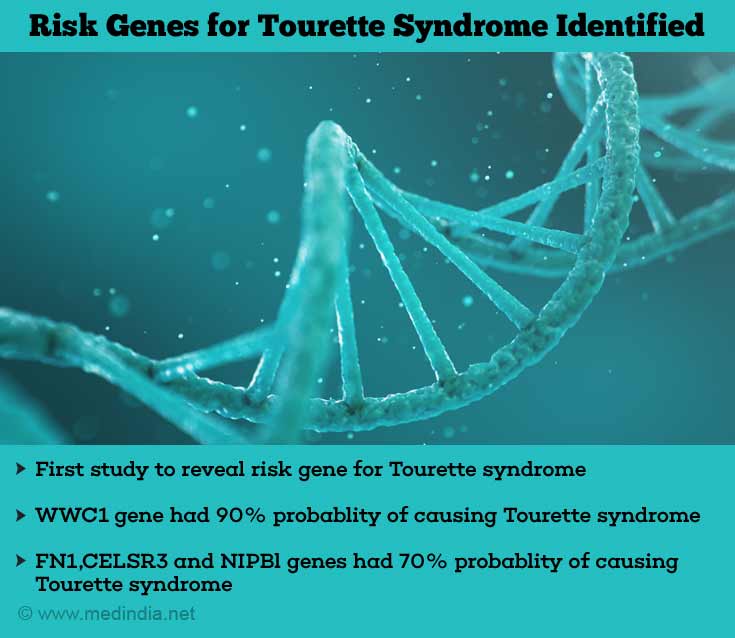- Dysfunctions of the basal ganglia-cerebellar-thalamo-cortical system produce motor tics in Tourette syndrome - (https://www.ncbi.nlm.nih.gov/pmc/articles/PMC5373520/#:~:text=Tourette%20syndrome%20is%20a%20neuropsychiatric,excess%20of%20the%20dopamine%20neurotransmitter)
What are the Causes of Tourette Syndrome?
The exact cause of Tourette syndrome is unknown. It is a rare disorder which may be caused by both genetic and environmental factors.
Key Genes Associated With Tourette Disorder
- A research team, with members from multiple reseach centers, has identified four genes that are involved in the development of Tourette syndrome.
- WWC1 is found to have 90% probability in the development of the syndrome.
- Identification of the cause will help in developing effective treatment methods for the condition.
The genetic data from the two studies were combined, which led to the identification of four genes expressed in the brain that were significantly associated with this disorder.
- WWC1: Also known as KIBRA had a 90% probability of being associated with Tourette's disorder. This gene is known to be involved in brain development, the brain's response to estrogen and memory.
- FN1 and CELSR3: These are involved in brain circuitry development.
- NIPBL or Delangin: NIPBL is involved in gene expression regulation in the brain.

Many believe that abnormalities in brain regions such as basal ganglia, frontal lobes, and cortex and an abnormal metabolism involving neurotransmitters dopamine and serotonin play an underlying role in this disorder(3✔ ✔Trusted Source
Dysfunctions of the basal ganglia-cerebellar-thalamo-cortical system produce motor tics in Tourette syndrome
Go to source).
Tics are genetically transmitted; it has been observed that parents with tics have a great chance of passing the gene on to their offspring










